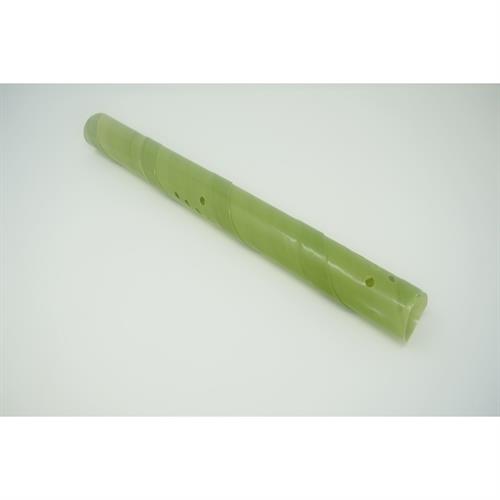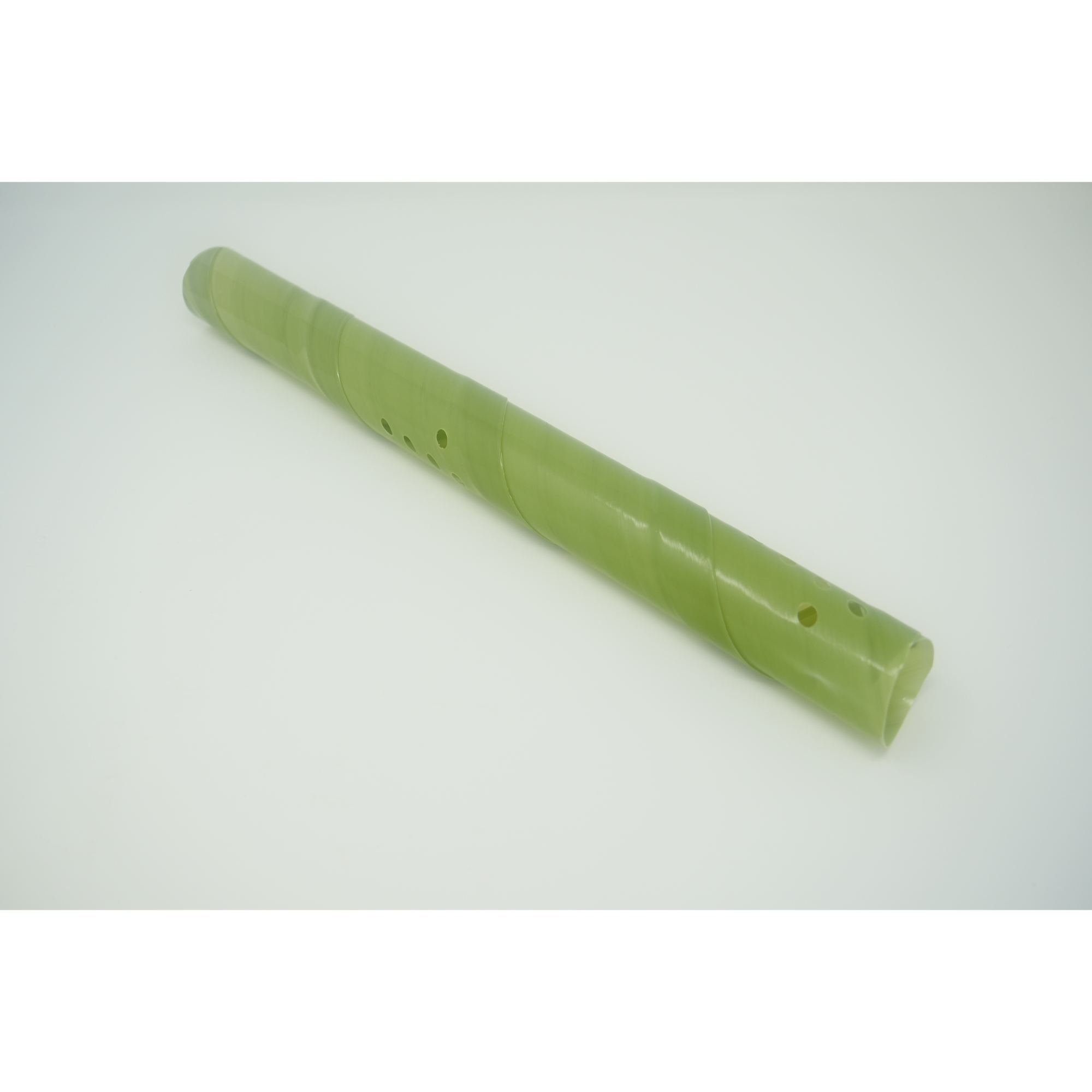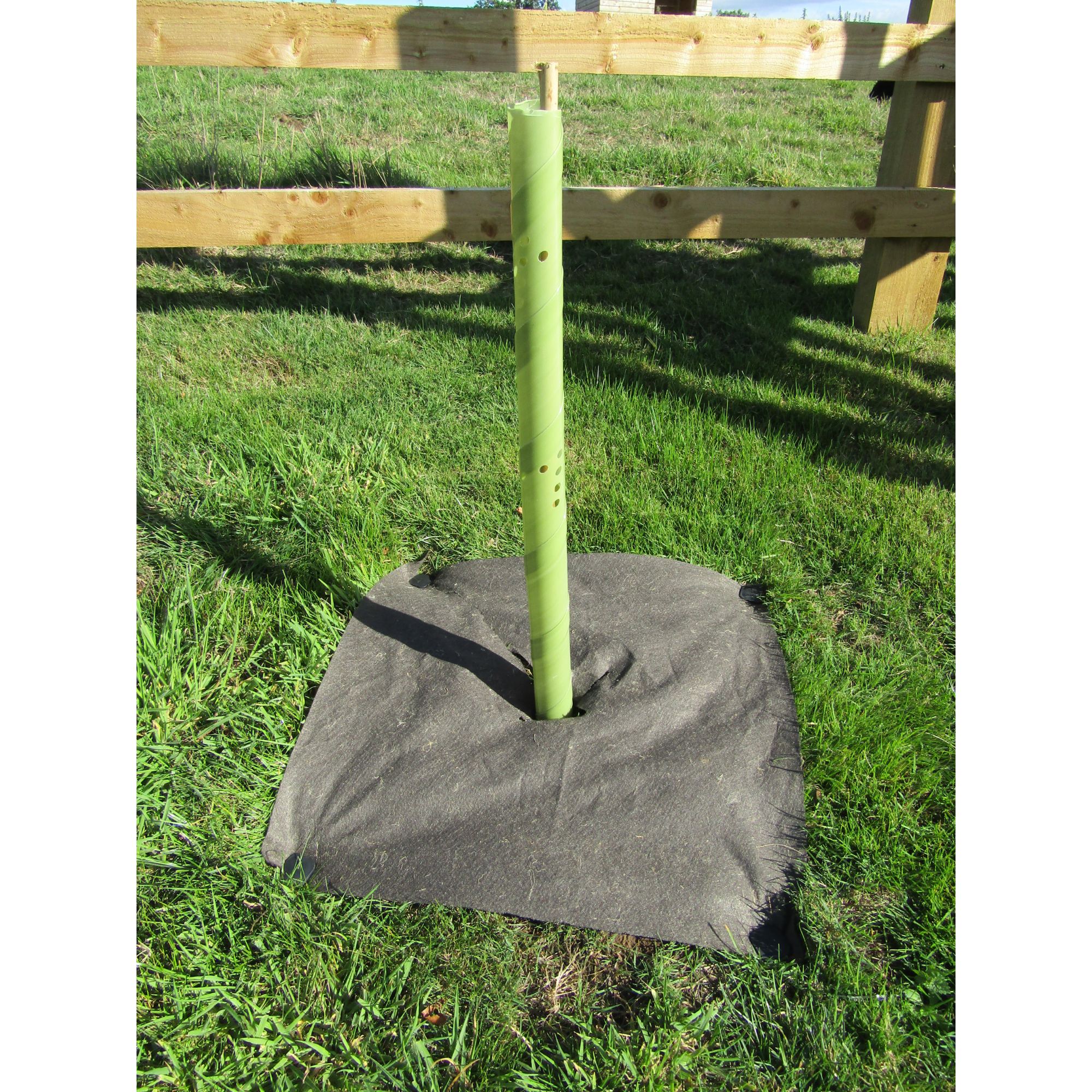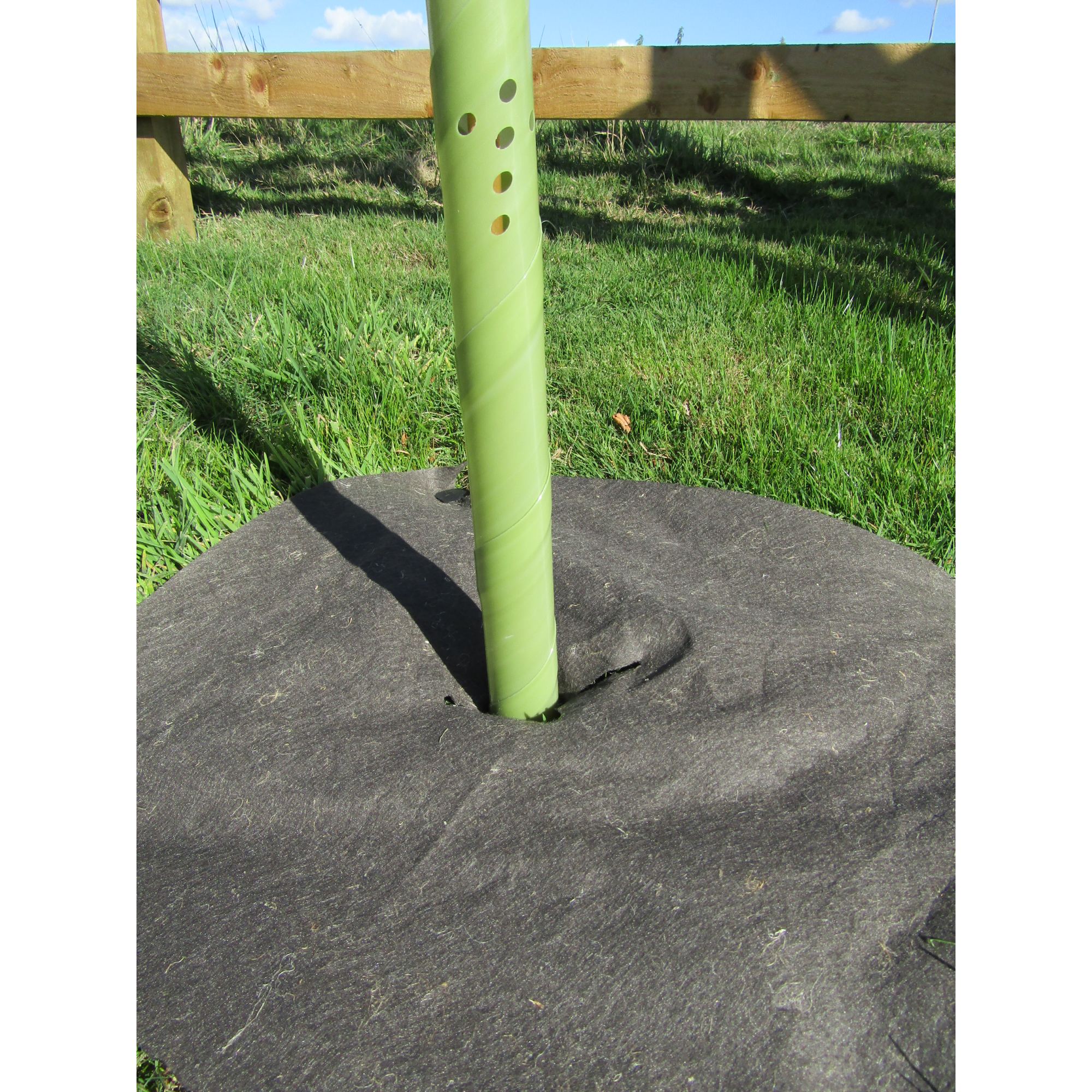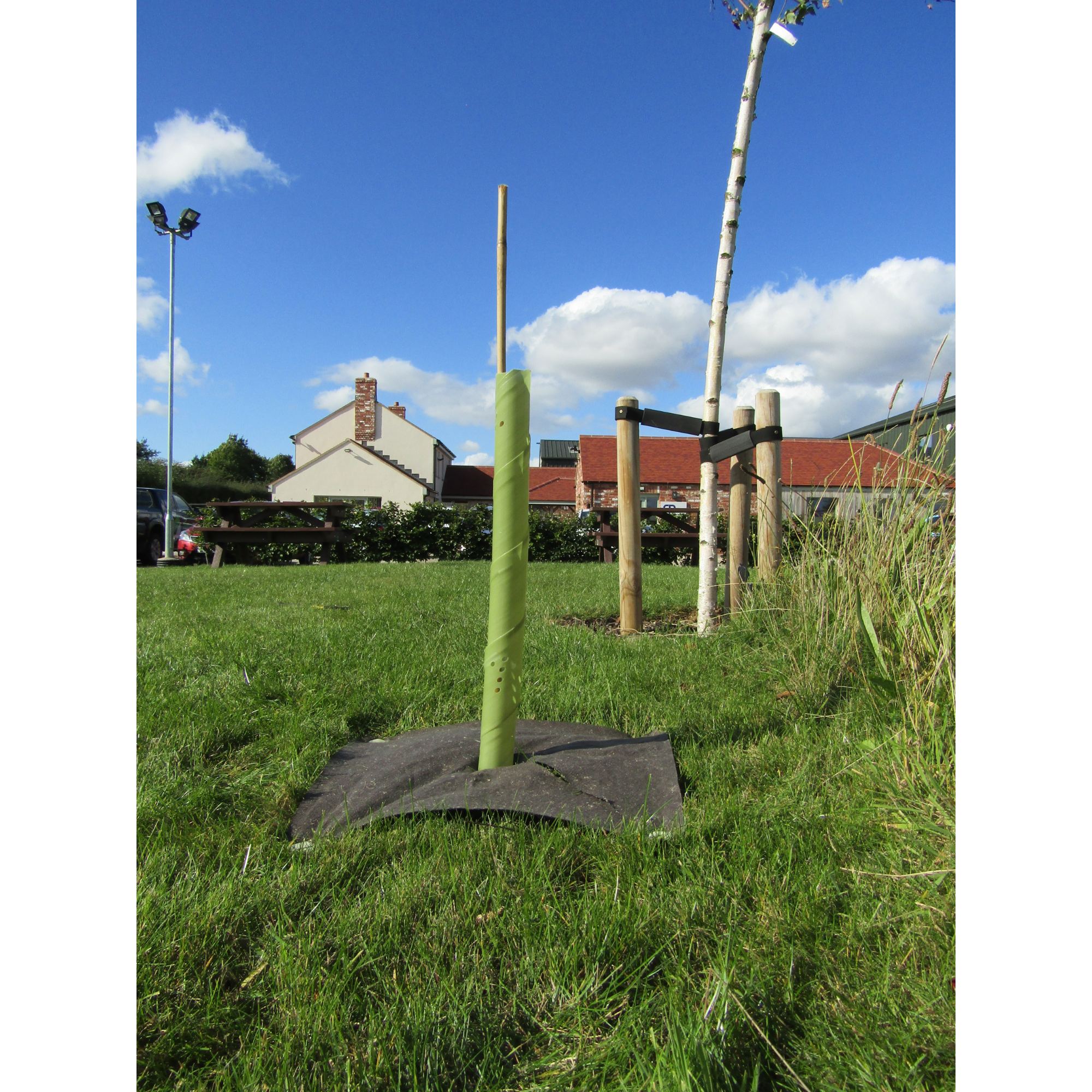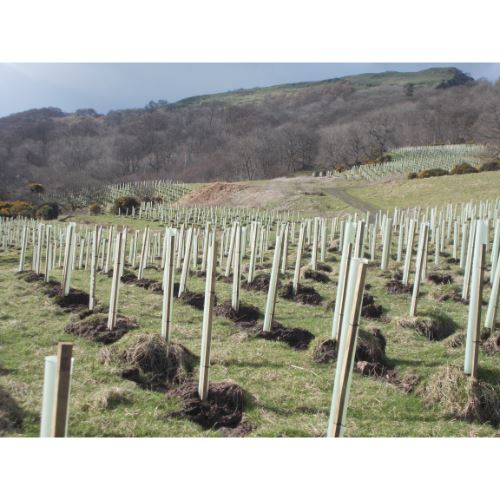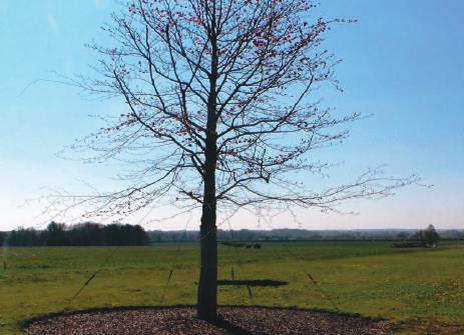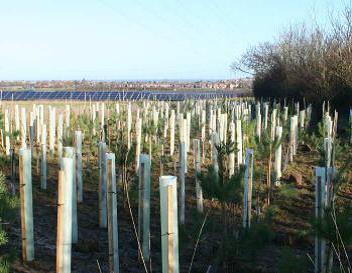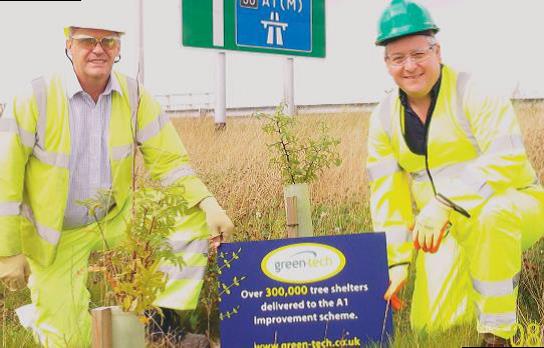| Datasheet Downloads | |
|---|---|
Treebio_Biodegradable_Spiral_Tree_Guard-Green-tech.pdf |
|
Rainbow Bio Spiral Guard
Rainbow Treebio Biodegradable Spiral Guards are a new product in response to the growing desire to reduce the use of standard plastics, we are delighted to introduce our new TreeBio range – an environmentally friendly, weed and erosion control range of planting essentials.
Bio Spiral Tree Guards
Sizes Available
- 60cm x 38mm
- 60cm x 50mm
Rainbow Bio Spiral Guards are a new product in response to the growing desire to reduce the use of standard plastics, an environmentally friendly, weed and erosion control range of planting essentials.
Bio Spiral Guards
- Manufactured from 100% biodegradable materials
- Independently tested
- Two-stage degradation process
Sizes Available
- 60cm x 38mm - Bio Spiral 50
- 60cm x 50mm - Bio Wrap 65
Colour Available
- Green Tint
Protection Size Guide
- 60cm Spirals protect against rabbits
Biodegradable material facts
The material used in the manufacture of the TreeBio range has been tested at an independent laboratory to be classified as fully compostable. It has also gained the DIN CERTO certificate.
The TreeBio guard will be attacked initially by UV degradation to start the break up process. Biodegradable stabilisers are added to the material before the manufacturing process to stabilise the spiral sufficiently to withstand this UV degradation for 4 – 5 years in the place of use.
How It Works
After the initial breakdown period of around 4 years where the breakdown is caused by UV degradation, photo degradation and moisture ingress we are left with a material that is classed as biodegradable according to both the American ASTM D6400 and European DIN CERTO EN13432. It will biodegrade completely in industrial composting facilities but we cannot give any definite times of breakdown in these circumstances as there are far too many unknowns and variables for us to cover in any test programme.
The materials are made primarily of polylactic acid, a repeating chain of lactic acid which undergoes a two-stage degradation process. The moisture and heat present in a compost pile and the soil attacks the polymer chains and splits them into much smaller parts of polymer and eventually pure lactic acid. Micro-organisms found in compost and soil will consume the lactic acids as nutrients as a food source for them. The result is carbon dioxide, water and humus which is a soil nutrient.

